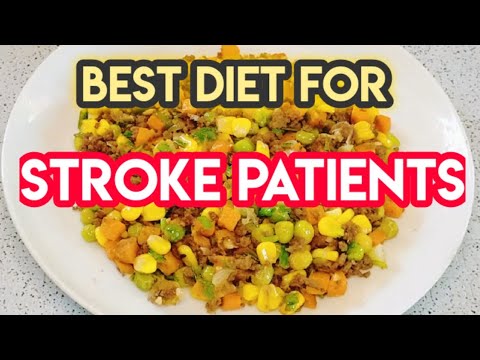
Your child needs to be able get different nutrients from different foods. If you are looking for food options, make sure you select foods high in lean proteins. This could be meat, poultry or fish. It can also come from nuts, seeds, legumes, nuts, dried fruits, and beans. Vegetables can also be good options, provided they aren't processed and have low sodium levels. Whole grains are better for children, especially if they are made from whole grain, which has more fiber than refined ones. Dairy products are good sources of calcium, while low-fat milk is also a good choice.
In addition to fruits and vegetables, children should drink plenty of water. A healthy body requires enough water to maintain temperature and function cells. The water they drink should be adjusted according to their age and sexual orientation. High-calorie foods increase risk of tooth decay, weight gain and heart disease in children, as well as increasing their likelihood of developing type 2. You should limit the intake of these foods in your child's daily diet. Whole grains are an option, as well as fruits and vegetables.

It is crucial to remember that your child needs a balanced diet. Before making any changes in your child's diet, you should consult your physician. Your pediatrician should be consulted before you introduce new foods to your child's diet. Fiber should not be added to the diet of your child as it can interfere with their ability to absorb vitamins and minerals.
You should be familiar with the following important facts about child nutrition. While it is not always possible to incorporate all the necessary nutrients into a child's diet, the basics are still important. Your child's requirements for vitamins and minerals will change as they age. Your child should get enough calcium every day in order to maintain their overall health. You can help your child develop healthy eating habits by ensuring they eat plenty of fruits, vegetables, and other nutritious foods.
Your child will also need calcium. Their bodies are developing at an extremely rapid pace and need a lot more nutrients. Therefore, you should choose foods with a high energy content. You can also cause your child to become underweight by eating a low-fat or no-fat diet. These foods should also have high levels of vitamins and minerals. Children under five years old may need different nutrients depending on their activities.

It is important to learn about the types of foods that are good for children. The right amount of vitamins and minerals must be included in a child's diet. Based on their height and weight, a child's body mass index (BMI) is calculated. Your pediatrician will recommend the best diet for your child. You should make sure your child eats healthy foods. There are many food options on the marketplace that are rich in vitamins and minerals.
FAQ
What does milk do for men?
Think about other uses for milk next time you purchase it. It may be a good idea to reduce your coffee intake.
It has been proven that milk is beneficial for both children and adults. Milk contains nutrients like vitamin D. Calcium, potassium, phosphorous, magnesium, and other essential nutrients.
It aids in digestion, strengthens bones, and promotes weight loss. Milk products can help adults have better immunity systems and less illness.
Milk is also rich in lactose, so people who cannot digest this sugar easily can enjoy its benefits without experiencing stomach problems.
Instead of drinking soda or juice, drink more milk. The extra calcium and vitamin D found in milk can help strengthen your teeth and bones.
If you don't like the taste of milk, you can always make your yogurt using plain low-fat milk. Yogurt can be a great substitute for milk, as it has fewer calories and more protein.
Yogurt also contains probiotics which improve digestion and immunity.
Warm milk can help you sleep better if you have trouble falling asleep. Warm milk can relax muscles and increase serotonin levels. This will help you sleep well.
Egg is good for men?
All the nutrients that the body needs are found in eggs. It supports strong bones, healthy heart, lungs, and stable blood sugar.
Eggs are a great source of protein, vitamins A and B12, D. E. K, calcium, magnesium, selenium and riboflavin.
Egg yolks are high in cholesterol. The egg yolk does not contain saturated oil. Eggs have less saturated oil than many other foods.
They are also low on calories and sodium. You can make them in any way you like. You can cook them in many ways, including poaching, boiling, hard-boiling, baking, and scramble.
They are extremely nutritious and simple to prepare.
Each day, you should consume at least 2 whole eggs. Avoid eating eggs.
Eggs are a good source of essential nutrients for our bodies. Include eggs in your daily diet.
What Is The Best Workout For Men Over 40?
For older men, the best workout usually gives them more energy and improves their stamina.
It is important to remember that most people over 40 experience a decline in testosterone, leading to lower sex drive.
But, that doesn't mean you can't enjoy some physical activity. Research has shown that exercise regularly can increase testosterone in men.
Aerobics can be a good way to improve your sexual performance.
Can I go to the gym seven days a week?
You can go to the gym seven times a week, but not at once. This means you need to choose a time when you feel rested and not too tired.
This will help you stay motivated and keep you energized for other activities.
It is important to eat right during these times. This will make it so you don't feel tired or sluggish while going to the gym.
Last but not least, ensure there are no other people competing for your time. Consider avoiding exercising on school night if you have small children. This will keep your attention from your workout.
Statistics
- Candidates and applicants must pass all four tests at 70% (minimum level) to graduate from Basic Deputy U.S. Marshal (BDUSM) Training. (usmarshals.gov)
- According to the American Academy of Dermatology (AAD), men over 50 are at a heightened risk of developing it. (healthline.com)
- Are You One of the 20% of Guys (mh.co.za)
- An estimated calorie range for moderately active adult males falls between 2,200 to 2,800 calories per day, depending on age. (eatright.org)
- Cardmembers earn 5% Back at Amazon.com with a Prime Credit Card. (amazon.com)
External Links
How To
How can I burn fat while exercising?
Exercise burns calories by increasing metabolism and oxygen consumption.
If you exercise with moderate intensity, you can safely lose weight.
These are the top tips for burning fat while you exercise.
-
Cardio exercises can include running, walking, swimming or cycling.
-
You can exercise for 30 mins three times per week.
-
You can lose weight by adding strength training to the routine.
-
Avoid intense training. You can build muscle and not break down muscle tissue.
-
Hydrate well during exercise. Water flushes out toxins, and keeps your body properly hydrated.
-
After exercising, you should drink low-fat protein drinks. Protein shakes are great for your muscles and energy.
-
Eat smaller meals throughout the day, so you don't feel hungry between meals.
-
Don't skip breakfast! Skipping breakfast can make you tired and sluggish.
-
Take care of your mind. Stressful situations can affect your metabolism.
-
Keep a positive attitude. Studies show that overweight people are more likely to be obese than those who perceive themselves as attractive.
-
Get enough rest. It is harder to lose fat if you don't get enough sleep.
-
Active living is key. Move around at least once an hour.
-
Maintain a healthy diet. A healthy diet will help you feel fuller for longer.
-
Find ways to relax. Tenseness can cause stress hormones to break down muscle tissue.
A balanced diet is one that includes all of the essential nutrients required for growth.
You should eat six small meals per day rather than three large ones. This gives your body the time it needs to process what you've eat.
For strong bones to be maintained, you need approximately 500mg of calcium per day. Calcium can be found as a dairy product such as milk, yogurt and fortified soy drinks, orange juices, cereals, breads, and cereals.
Calcium is found in leafy vegetables, beans and tofu, as well nuts, seeds and cheese.
Vitamin D is required for calcium absorption. Vitamin D is found in certain fortified foods, such as egg yolk and fatty fish.
Vitamin E is essential for skin health. Vitamin E can also be found in vegetable oil, wheat germ oils, peanuts as well almonds, sunflower seeds and corn.
Your body needs zinc for normal immunity function and wound healing. Zinc can be found in seafood, legumes and meats.
Zinc deficiencies can lead to fatigue, decreased appetite, depression, and reduced immunity.
Too much sugar leads to insulin resistance. This results in higher blood glucose levels. Insulin resistance is linked to weight gain.
Insulin resistance is caused by high blood levels of free-radicals. Free radicals are molecules that have unpaired electrons, which can cause damage to cell membranes or other parts of your body.
The most common sources of free radicals include food additives.
Free radicals can lead to cancer and heart disease, diabetes mellitus, arthritis, asthma, and premature aging.
To prevent free radical damage, eat a healthy diet rich in antioxidants. Antioxidants protect against oxidative damage.
Vitamin C is found in citrus fruits and beta carotene is found in carrots.
Additional antioxidant nutrients include selenium and copper, manganese and zinc.
Selenium is known to protect cells from the oxidative damage that free radicals can cause. Selenium is found in Brazil nuts, tuna, liver, kidney, shrimp, cod, turkey, beef, lamb, pork, and chicken.
Copper protects the brain and eyes as well as the lungs and red blood cells. Copper is found in shellfish, poultry, meat, and organ meats.
Manganese, an essential component of bone strength, is crucial. Manganese can be found in brown rice and spinach as well as bananas, prunes raisins, oatmeal, lentils, and oatmeal.
Zinc helps with normal growth, reproduction, as well as wound healing. Zn can also be found in white fish, lean cuts of meat, poultry, and eggs.